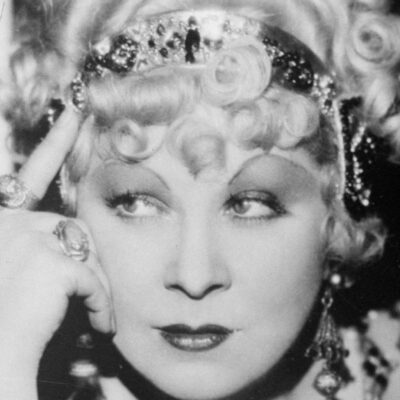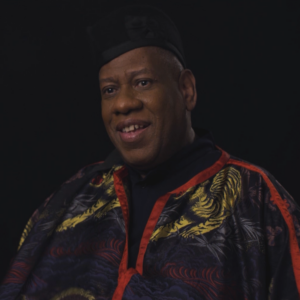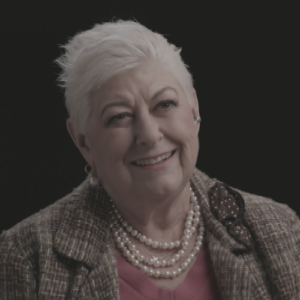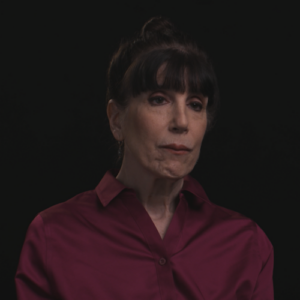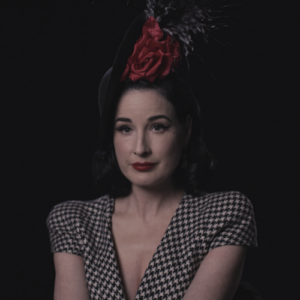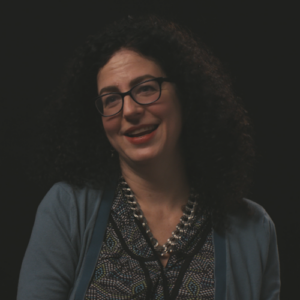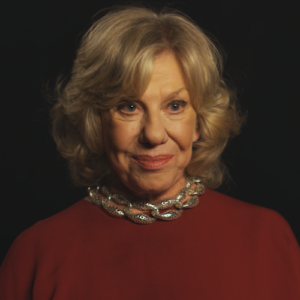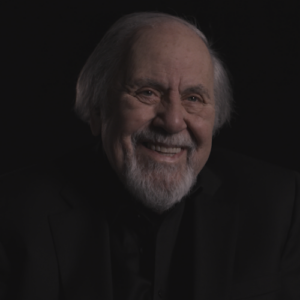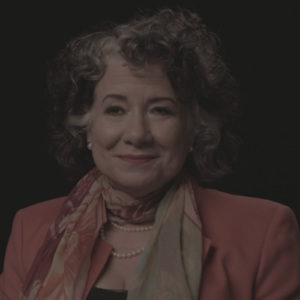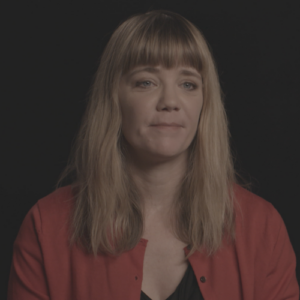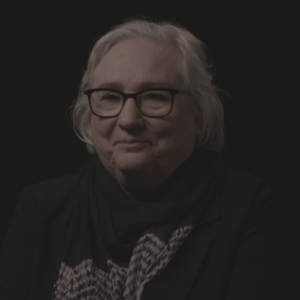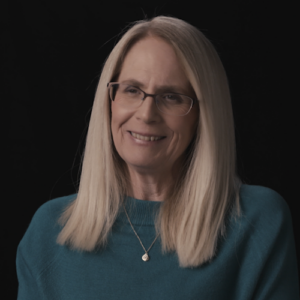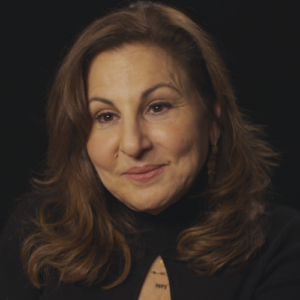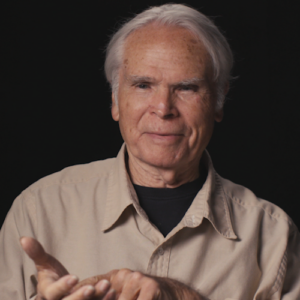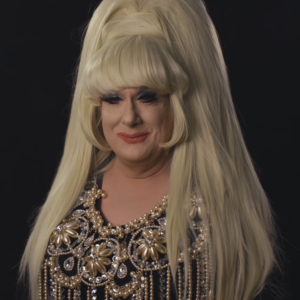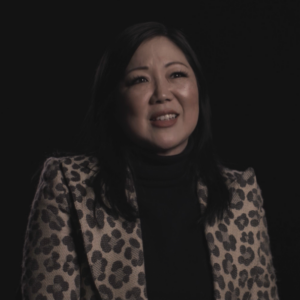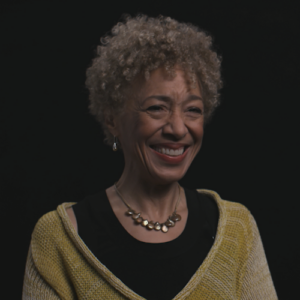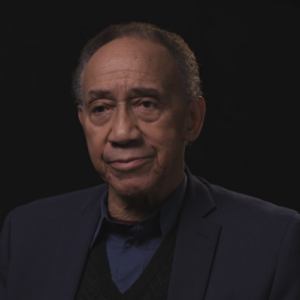Lillian Schlissel: The trouble with Mae West is that people don’t think of her as a writer. They think of her on the stage. They think of her in the movies. But I have always believed she was first a writer. I think the words were very important to her. The slang slang words or the the words to astonish, which are not exactly slang, but were what she used deliberately when she wanted people to sit up in their seats. So I’ve always approached her as a writer first and a shameless performer second. But she had that streak and it came out of her childhood. It’s nothing she learned. In fact, I’ve always been very interested in her younger years. In fact, I’m probably one of the only of the writers who write about her to start when she was a kid. She was always what she was. Many actors become what they are to people who see them in the movies. But I’ve always felt of her that she was a writer before she was an actor. She knew how much she wanted to shock people and how much she didn’t give a damn what they thought. Which are two different things. But she’s a word person. In fact, when Dashiell Hammett wrote the Sam Spade detective stories, he is said to have read Mae West first. So whenever I hear Sam Spade speech in a bar or barroom or nightclub, I think of her feeding the lines to Sam Spade to have Dashiell Hammett, The Maltese Falcon, say what he wanted. She was a smart lady, and people have a way of not crediting her with being as smart as she was. Now, when I say that, I’ve always felt her as a smart lady. What I mean is she was a smart businesswoman, but she was also a smart writer. Now, those are two different things. You could be a smart businesswoman, which she was, but you could also be a smart writer, which she was. They don’t always come together in the same people, but I’ve always liked her because. I think for some reason that I cannot explain. She used the drag scenes and the men who were drags who lived their life as other people. I know I want to back up in the plays, in the plays from the beginning, from sex on. She makes a point. I use the word in my notes that I will share with you of morality. There was a morality in her which people are reluctant to grant her. They think of her more as a kind of a power on the stage. But I think maybe not. I think that a lot of the comedy, particularly in Sex and Pleasure Man, was extremely moralistic. I think she punishes the villains because they are cruel to people. And it’s that in the pleasure man and in sex, that is their downfall because they’re mean and they’re mean to people that she liked. She liked all the gay men. She paid their bail when they were thrown in jail. She borrowed the money from her mother, which I’ve always liked, but she really liked them. Now I have no explanation of where that comes from. I don’t know where West developed that friendship. A kind of loyalty. Because and I’ll say this the way I want to say it, they went out on the streets as what they were other people. Her definition of society is that they’re fakes. Everybody in say, in sex is a fake. And that’s what defines them as being corrupt. The women who go up to the brothels in Montreal are fakes. They pretend to be rich, matron, but they’re fakes. And what? West accepted as the basis of her friendship, which that you’re not a fake. You are what you are. And the gay crowds. We’re honest. They were honest men who like to dress up, and there was nothing wrong with that. If you put it out front and said, This is who I am. In pleasure, man. I was just writing this. The character that she loves the best is Bird of Paradise. No, Bird of Paradise is a wonderful, flaming drag. And he is the star. He is really the star of the play. In fact, the notes I’ll leave with you are his lines. He says somewhere in the play, probably closer to the end. Now, in the pleasure man, some character who I forget who what his name is on stage worries that his wife has gone off with Rodney Terrill, the bad pleasure man. And it’s Bird of Paradise who says to him what I think is one of the greatest morality lines Mae West ever wrote in her life. He says to the husband, Why not give her another chance? She may not be as bad as you think she is. Why don’t you give her another chance? Now, I think that that’s a great line. I think it’s a dramatic line. Actually, it stops the play. Because you have to stop at that line, even when the person who speaks it is a man. In wild drag called Bird of Paradise. But he’s got the line that makes the play important. Other than other than that, it’s a sham to get away with it. Mae West. If she was anything, really liked to get away with it. I mean, there was something about cheating the police or cheating the district attorney or cheating people who are the real fakes of society. And that’s what played what Bird of Paradise doesn’t do. In fact, that was one of her star players, one of her star actors. And whoever gets to play that role today, if it’s produced again, would have to be fantastically good. Because Bird of Paradise says, why not give her another chance? People can be many things. They are not just the men in drag. They are not just the villain. They are not one thing. People can be many things. And I think that’s if I have no explanation for where Mae West got her crowd of men in drag. I know she got them somewhere, but I have no explanation for it. I don’t know where she met them. I don’t know what they were doing before she met them. She, as you know, took them into court when when they brought her to trial and they acted everything out for the court and the judge and all this one and no one. But where did she come to them? I don’t know. I have no explanation. And in fact, maybe one of the other people speaking to you in this interview series will tell you where she found them, because I don’t know. But she has this idea and it’s what she gives the audience, that these people are honest, they are what they are, and they don’t fake you out and they don’t like the women who go up to the brothel in Montreal and pretend to their virtue, even though they’re fake, are what she sees around society all around her. She’s surrounded by a society of fakes and her plays. I want to back up a little bit. Say sex, the drag and pleasure man, early plays. And once she’s past those plays, she is, I think in many ways a different performer because I think she realizes after those plays that tend to make comedy out of what she did make comedy of in the early plays, it it becomes proscriptive. You can’t do that anymore. So by the time she goes to Hollywood, she’s no longer allowed to use the drag scenes, the men in drag as her comedians, because she knows that they know that they are all square with each other. She’s not lying to them. They’re not lying to her. But she can’t use them in Hollywood. She doesn’t use them in Hollywood. She drops them in Hollywood because the rules are too strict and the money is too high.
Interviewer: But, you know, she did actually try to write the drag as a movie throughout her life. I think she never finished it. But that was wonderful. That was really great. I feel like an answer, like five questions at once. Let’s talk about her childhood and how that relates to her writing. You mentioned that earlier.
Lillian Schlissel: Yes, I have a page in my notes. I called her childhood and I. I think I sent a note to you that I think that that’s a very important part that very many people avoid, don’t know about. What we know of her is piecemeal. She does not spend a lot of time telling you about her childhood. Her mother was her supporter, but her mother was also a model for lingerie. And she gave Mae West says, the right way. She gave her daughter a certain ability to flaunt herself in a nightgown. I mean, it’s an odd thing, but she dressed Mae West. I just she had Mae. She had a brother and she had a sister. And I’ll talk about the sister because I think the sister is very important. But she gave me the feeling that when she was on stage, people were looking at her and that was fine. Her father was the guy that real boxers used as their practice figure. He wasn’t the boxer in the Starlight. He wasn’t a real boxer, which is why she calls in so many different things in her autobiography. He was the guy they punched around. But at home he was the one who laid down a wooden floor for her in the basement so she could have someplace to practice her tap dancing. And her mother was the one who dressed her up as her pretty doll. She had a brother who doesn’t spend much of his life with her. I don’t know what happened to her brother. The brother is not very visible in her life. I don’t know what happens to him. I don’t know whether he was friendly with her. I don’t know very much about her brother. It’s the sister who casts a shadow on her life. Because as I think I’ve written to you or to somebody else, Beverly was her younger sister who had what they used to call in 50 years ago a clubfoot. She did not walk properly. She had to wear a special boot when she went out. And that embarrassed me enormously to be associated with infirmity. It bothered her. Her mother kept saying, Use Beverly in the act. Use Beverly in the act. But you can’t dance with somebody who’s got a clubfoot. And they resented that. I don’t want to drag this kid around with me all the time. I don’t think she can be my partner in a tap dance routine. It doesn’t work. What we know of Beverly is that she. She felt that sting all her life. Of course. My oldest sister thinks I’m a drag. I couldn’t be part of her act. I couldn’t go on the stage when she was on the stage. So what we know about Beverly is that she became an alcoholic, bad alcoholic. She married twice. From what we guess, by the names, Russian men. But she also became an uncontrollable alcoholic. And so there is Mae, the example of boundless energy, beauty and health tied to a sister who doesn’t walk properly. She never brought Beverly to Hollywood with her. And and that leads to kind of interesting stories about me, not about Beverly, whom she really drops. She leaves her she leaves her money and she knows what how she’s married. But they are never close. And it has something to do with Mays looking for the right feeling. She didn’t want to be associated with a sister who was infirm. It cut into her picture of herself as beautiful, strong, happy. And there was this kid who was an alcoholic. I mean, that’s real. And she couldn’t ever erase that. There are a lot of people in Mae West biographical life. That are erased. I don’t know why all the biographies, but by most of the biographies. When she went out to Hollywood, she was a rich woman by that point later in her years, and she bought her a hotel. Not really. A hotel was an apartment house called the Ravenswood on the outskirts of Hollywood. And she put up all the old boxers who had no place to live. She had an apartment for them and they stayed there. So you see, Mae, when she’s an older woman owning this apartment building filled with old men who were at one point in a boxing ring. The scene that I am very fond of is that when the films, when there was a gap between a film that you could sell a studio and anything that she was in. She used to take off her wig, take off her high heels. And the the old boxes used to be her cab drivers. They would drive through Hollywood streets, men who was half the size when she took her side streets off and when she took her wig off and nobody would recognize her. And at night, she and the boxer would walk through Hollywood, store streets and look in the windows and two old people. With their nose presses to the window, looking at the mannequins, which were, in a sense, her and her love of looking at beautiful girls in beautiful dresses with it. With when you’re not wearing your high heels, when your wig is in the car. And I just have a great fondness for those pictures of her, which never get talked about. But at that point, who was to record her old age? They were as much part of her as anything else. And to give her credit, as everybody knows, she just kept playing and playing and playing until nobody could stand her anymore. But she was also under all that facade and color and glitter that she dragged into old age with her. She was an old lady. And how do we fit that back into the picture? I think that’s one of the problems we have with her. You fit it back into the picture, I think, because she was very, very smart. She wrote a lot of her own scripts. Even to the end because she thought no screenwriter could do with her what she wanted to do with herself. So she would take scripts and fix them, make herself smarter, younger, prettier. But that’s all part of what she was. She was always younger, smarter, prettier.
Interviewer: Well, she’s she starts writing this when she starts writing so that she can have a starring vehicle.
Lillian Schlissel: Yes, of course.
Interviewer: So why does she write the drag and pleasure man with the don’t even have roles for her. What do you think that was about?
Lillian Schlissel: I don’t know. That. In the very early plays. It’s hard to say because I’m not sure.
Interviewer: Like, do you think that she was trying to make a social statement or was she taking advantage of the pansy craze?
Lillian Schlissel: Maybe. Maybe she had this crowd of men in drag who always followed her and adored her. And I think part of her wanted to write something where they would have a role and a reason to be on stage. There’s a line where she says. Of where Bird of Paradise says in. I think it’s a pleasure, man. Who forgot his name is wife has gone off with someone and Bird of Paradise, who is really a wonderful character. And if you ever find any photograph of the fellow who is playing Bird of Paradise, for Pete’s sake, put it on screen. I don’t know. But he says to her husband, who suspects that his wife is cheating on him. Bird of Paradise says to the husband, Why don’t you give her another chance? Which is a great line.
Interviewer: Going back to sex for a minute, just because you know her her first starring role, the role that she writes for right to present herself to Broadway, In what ways does Margie Lemon reflect for me? Do you see me in her care? Sure. In what ways?
Lillian Schlissel: Sure. Well, Margie Lamont comes across as the one who, quote, wins. She knows enough to know that the wife, the women who come up to monitoring all are fakes. So she is able to dismiss them as frauds. And in fact, her own judgment of society is that society is made up of frauds. So she knows, she says to I forgot the name of the woman, but she says, Choose a woman who is making fun of her. You are always looking down on me. But you are. I forgot how she puts it. You are the real fraud in this in the play. And she sees them all as fakes. And that’s if it’s a reason why she doesn’t. Can’t continue with that line of writing. It’s dangerous. And it certainly is not going to sell by the time she goes to Hollywood. So she can say it in sexless. It’s 1926, but she can’t sell that again if she’s in if she’s making money and making money.
Interviewer: But one thing, it’s different with sex and the other places. There’s a lot of anger.
Lillian Schlissel: Oh, yeah.
Interviewer: You talk about it like a sheep. What’s it about? Why? Why does she have so much anger to express in that play, but not in any of the plays?
Lillian Schlissel: Follow it because it was dangerous. It was dangerous to do that. I mean, you she knew that they disdained her. And so the only thing she could do is she could disdain them. But that’s a dangerous game. You can’t play that game in Hollywood. You can play that game in the Bronx and on Broadway. And she did. But you couldn’t carry that away with you. And I’m never sure how many women were in her fan club. I don’t know. I mean, men were good. She was a good time. But I don’t know that women were part of her group. In a sense. She loses. What? What the earlier women on Broadway had. Who is the one who precedes her, who whose name escapes me now. Even Tanqueray was ten years before Mae West, and Tanqueray was never as wicked as Mae West. She wasn’t looking for that. And it wasn’t her. She was funny. Mae West is never funny in the same way. She’s clever, but not really funny. In other words, what happens to the gay men is not funny. You can laugh at them. But that’s not what ever Tang Wei was. Every time she was a funny girl and she never thought too much of making fun of herself. She played the part. She played the part of Salome in 1912, 1911. That’s a decade before Mae West. She played that part and then did an Irish jig. So she had no compulsion about playing Salome and doing an Irish jig. It didn’t matter that it wasn’t. It was only a fun time where you could do that. But Mae West didn’t have that light sense of comedy. She might laugh, but it was not lightly funny.
Interviewer: Well, in that sense, can you sort of do you see Bert Williams influence on her? Because that seems more like what you’re talking about, that kind of. The comedy. That’s all commentary.
Lillian Schlissel: Hmm. She in her biography, such as it is, she says that the family, her mother and father invited Bert Williams to their home. Which is funny because that took some doing for them. And of course, she enjoyed it enormously. But there are many points in Mae’s life where the pieces don’t always go together. And I think as a biographer and I like to work in biography, it somehow is more fun to work in reality than in fiction. She knew when. When Vera Williams came to the house. She knew him as someone who had been successful and success was wonderful. No matter what you did with it, no matter how you got it, it was success. And she was just beginning. She was a young girl at that point. I like the stories of Mae West when she was very young and very old. I like her crawling through the streets with an old boxer without her wig and without her high heels. And I like the stories of her wearing Flouncy dresses because her mother had sewn them for her.
Interviewer: What of miss upbringing do you see in Diamond Will and Dynamos, kind of the character she plays for the rest of her life? Yes. Yeah. You see her upbringing in that?
Lillian Schlissel: Not too much, which may be my inadequacies, but.
Interviewer: Well, in what ways do you think it reflects May’s reality, if at all?
Lillian Schlissel: I’m not sure year because once characters see Diamond Lil erases. The Mae West, who was in a crowd of men who were drags. She doesn’t belong there and she has to drop that crowd when she goes to Hollywood and takes the roles that Hollywood gives her. And then she writes for herself in Hollywood. It’s part of her life that she has to cut away because you can’t be Diamond Lil and run around with men in drag. So she does. She doesn’t she doesn’t really take them to Hollywood until she buys a hotel and gives them a place to live.
Interviewer: You wrote that in six May. Hopefully they’ll be better than that. That may made sin a domestic product. What does that mean in sex.
Lillian Schlissel: Before sex comes on the stage in 1926 or immediately around it? Behind on top of it. After it, there were half a dozen plays, mostly by Somerset Maugham, about sex in the tropics. It was not enough for Broadway to think that sex was something on a tropical island with a bad woman. And what Mae does is she put sex in a brothel in Montreal or in New York or in Connecticut. So it’s not you don’t have to go to a tropical island. You don’t have to have girls in hula skirts. The character lead in one of Somerset Maugham plays is a character called Mother. God damn. That’s not Mae West. You see it with Mae West. If you want to deal with her, honestly, you can’t drop the comedy. And Somerset mourns Mother, God damn where she gathers young girls and corrupts them. That’s not funny. And for Mae West, at some point, there has to be a touch of funny. Otherwise, she’s not who she is. I’m running out.
Interviewer: Well. In in Sex and in Diamond Lily. Really? All of her movies. What rules is she breaking by having a prostitute that gets a happy ending?
Lillian Schlissel: Yes.
Interviewer: She doesn’t get her.
Lillian Schlissel: Isn’t that nice?
Interviewer: You talk about that.
Lillian Schlissel: But you have to remember that, for example, in sex, Agnes, who is a prostitute, drowns. So it’s not that they’re all happy endings. Agnes is a girl who drowns herself because she cannot go home and tell her parents how she’s going to earn money. So she throws herself over the side of the ship. All right. So if she’s paid her dues, Mae West is paid her dues to that story. The story of the girl who became a prostitute to earn money but cannot go home, cannot tell her family what she’s been and chooses to die in. Pleasure, man. The girl who takes up with Rodney Terrill dies of a back alley abortion because she cannot admit to her family what has happened to her. He won’t marry her. He’s a cad who won’t marry her. So her brother comes and kills him. But in that, in both of those scenes, the bad girl is avenged. If she’s not now, the girl who drowns herself is not avenged in the pleasure man. And the girl who is deceived is avenged by her brother.
Interviewer: But also in both of those examples you just gave, the women are ashamed of what they do. I mean, Mae West character’s not a not ashamed.
Lillian Schlissel: Yeah, that’s right. Yes. Yes. Oh, West would have supported that wholeheartedly. First of all, the women in Sex, the woman’s son falls in love with Marjorie Lamont and Mae West. Can’t have the young, innocent boy fall in love with a girl who is a prostitute. So she has the process to find a sailor with a sailor’s equal in her to bad ways. So this. And she makes a dirty joke in the end of the play. So that’s that legitimizes both of them. Both of them together can know the score, which is what she would call it.
Interviewer: Oh. The depth of feeling expressed by the characters in the track and some of those serious topics. Was that how typical was that at the time, or like the other kind of plays that took advantage of the pansy craze? Did they get heavy like that? No. Why do you think she did that?
Lillian Schlissel: I don’t think she ever really hit heavy. I think she really stays on the side of comedy, even in all the other plays. You never will see her totally given to it. I mean, let me let me back up. Her morality plays are couched in comedy. In other words, there’s a comedy to excuse them. And when they go to court, she brings all the drag crowd in with her so they can perform before the drug and the judge and the jury. In in the court scenes. It’s really splendid because she sees the court as a theater and takes full advantage of it, and she invites all the drag queens to perform before the jury, which is really terribly cheeky thing to do. And she didn’t give a damn, which is why people like her so much. In other words, the jury is another group of fakes just the way the drugs are. She knows that the men who sitting on the jury enjoy a dirty joke as much as the the two sides are equal. And that’s why she pays all their bail. It costs a heavy amount of bucks. And it didn’t bother her at all. That was who she was. And she demanded that she be seen. See, that’s the whole thing. If you take the line of the play is that honesty and direction are important. That morality is important only if it’s honest that the people who are really corrupt are the people who are fakes. And you have to go through society separating the fakes from the real. And if the real are the men in drag, then that’s too bad. It just seems simply too bad.
Interviewer: So just a little bit of playing down a little of the storyline. What happens to the drag after it opens out of town? She wants to bring it in to New York and she can’t. Why?
Lillian Schlissel: I’m like, okay. You know, people like the the fellow who was the district attorney wanted to exploit her and her crowd and tried to close her down. And by that time, she was also getting nibbles from Hollywood and beginning to be noticed. And Hollywood simply thought they could use her. And she was businesswoman. She knew where the money was. It wasn’t in the Bronx. And she simply, you know, follow the money if you’re not going to be a fool.
Interviewer: It seems like in Diamond, well, everything kind of comes together. She has critical success. She has commercial success. What changes is it her writing, the changes or have the tides turned in terms of people?
Lillian Schlissel: Once she goes to Hollywood, she’s a commercial product and you can she’s not going to look that in the face and she changes. And you can’t say that those plays. Well, I will say those plays are less interesting than the plays she wrote in off-Broadway and on Broadway and in New York. She becomes a creature of what she had always wanted to be, which is a success. But success puts certain limits on her, and like many other artists who work and work until they gain attention. And then when they gain attention, they are restricted as to what they can do and what they can’t do anymore. And the morality changes. For example, the the the bird of paradise. When he says to the husband who thinks his wife is cheating on him, why don’t you give her another chance? She can sell that to Broadway to to Hollywood. It’s not salable. And she knew it. So she dropped it.
Interviewer: She’s a tough girl. And and I first learned about the tough girls reading your introduction to that book. What were the characteristics of the tough girl? And would you say that was an integral part of her persona?
Lillian Schlissel: West risked being known as somebody who would do bad things. Not exactly bad things. But she went with a fast crowd. And tough girls, such a tough girls that they dressed in order to gain attention, which ladies never did. And it was like she that was part of her giving this the finger to the wealthy class. You dress the way you wanted to dress. But the phrase the tough girls was a phrase actually, that belonged to. Roosevelt’s first term in office where the women who were supporting him were embarrassed by some of the girls who supported Roosevelt in his first term. 1912. It was before the women’s strike. The. The fire ad in 1912 at the loft where many poor girls were burned to death.
Interviewer: The Triangle Shirtwaist.
Lillian Schlissel: Triangle Shirtwaist Fire in 1912, I think, led to a march down fifth Avenue of Broadway, of working girls that were not yet beginning to demand the vote, but were a group that would, in ten years, move on to demanding the vote. But on the other hand, she did not march with them because she thought that she and her reputation would spoil their reputation for hard working girls. So she stayed away. And that’s a kind of an interesting thing. It meant that where she was politically, she could not say so She sort of hid behind a pillar post. She wouldn’t march in that march. There was a march in 1912 of working girls. I was well.
Interviewer: I don’t know. I was wondering if you to say how accurate you think your autobiography actually is.
Lillian Schlissel: What? I know of her. I know of her from other places, not from that book. And I don’t know how much she hid because at that point, she was already hiding. By the time she wrote that book, she was already hiding stuff. And it you have to know a lot about her to know when when you’re reading hidden stuff and when you’re reading real stuff. For her walking the streets in Hollywood with the old fire fighter after she had thrown away the wig and high heels. That’s an old woman who doesn’t ever appear. You’d never know that would have been her, except if you knew that that’s what she could do when she was alone and no one was looking.

